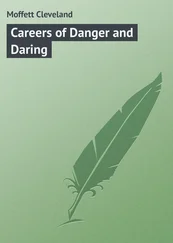It didn’t look good for Hal’s first year of administration now that the entire quarter’s worth of production lay scattered on the floor of the ocean. His father held things together with experience and alliances Hal simply didn’t have, yet. The prudent thing might be abandonment, not that it could be accomplished quickly or cheaply. The expenses involved in covering tracks were greater and more immediate than the operating costs of a now minimally profitable venture.
He slung his compact needle-beamer under his right arm and pulled on a tunic, checking himself in the mirror. The face staring back raised one eyebrow as it often did. The skin was just starting to lose the glow of youth; he could point out the places where fine lines would one day tell others whether he tended toward worry or laughter. Dark highlights crept into once gloriously blond hair, complimenting pale brown eyes. He’d put on a few pounds, but it didn’t show. Midway through his third decade, his only regret was not accomplishing as much as his predecessors.
A timid knock clued him to Dayuki’s arrival. Hal opened the door but his greeting faltered at the sight of an elegant young Minzoku woman. Long, ebony hair flowed down her back like a waterfall, rippling as if it were lighter than air; a gown of colorful, lustrous fabric hugged her body in lieu of the utilitarian tunic and trousers Hal expected.
Dayuki bowed shyly at his expression. “Have I come too soon?”
“Ah, not at all. Lead the way.” Dayuki turned down the corridor, motioning him to follow. Open seams up each side allowed long-legged strides to replace the submissive half-steps she affected on duty, though decorum demanded that legs thus revealed be clad in the same type of fabric as the gown.
They walked down a dim side corridor to a heavy metal door that opened into the bottom of a ladder well. Dayuki went up first to unlock the trapdoor at the top. Hal had a bad moment when his chest threatened to become wedged in an opening designed for more slender bodies, but he emptied his lungs and slipped through.
A horse and cart stood nearby. The animal watched them approach, snorted, and stomped a hoof. Dayuki took up the reins and slapped it on the rump with a long, narrow stick. It took a few halting steps and looked back mournfully at the unusually heavy load. Another slap convinced it to continue.
The air was dry and chilly, almost biting, an early symptom of approaching winter. Insects stopped chirping when the cart approached, took up again when it passed. The horse worked up to a trot on the smooth, sandy road, taking them farther inland. It turned abruptly, the reason clear when they left the trees. A lake spread out to the left and the road ran along the edge of a high embankment or cliff that sloped down to the near shore. The water reflected the lights of a small town on the other side. The presence of electrical power surprised Hal. Despite Den Tun’s control of the old manufacturing facilities and the technology he acquired from the Family, he kept his own people agrarian and backward, for the most part. Most Minzoku were as blissfully unaware of Den Tun’s dealings with the Family as the gaijin were their own government’s malfeasance.
“Is that where you’re from?” Hal asked.
Dayuki shook her head. “I was born in a fishing village to the south. This is Tessaoua, where the families of the base personnel live.”
Bright pagodas rose three and four stories. The main street was paved and lit by electric lights and filled with people. There were a few military vehicles here and there, but the primary modes of transportation were horse and bicycle. Dayuki turned onto a side street, keeping the animal at a trot all the way to an alley that ran along the rear of the buildings.
The horse assumed a three-legged stance as soon as they stopped. Dayuki wrapped the reins around a post and pointed at the door. “In there, quickly.” Hal ducked through to find himself in the back of a kitchen. “Wait here.”
Dayuki vanished through another door, returning shortly with the proprietor, who greeted Hal with a smile and bow. The man took them to an alcove that had been partitioned off from the rest of the room with a framework of wood and dark paper. The only furniture was a low, expertly carved wooden table with pillows on two sides. Dayuki took off her slippers, indicating that Hal should do likewise, and sat down.
Hal picked up the little scrolled parchment he assumed was the menu. It was pleasing to look at, but he couldn’t make head or tail of it.
“Bulao is known for his sashimi and duck,” Dayuki suggested.
“What’s sashimi? ” Hal asked.
“Specially prepared raw fish,” she said.
“I’ll take the duck,” he replied without hesitation. Hal studied the room while she gave Bulao their orders. The decorations on the walls testified to the unique blending of African and Asian cultures that bore the Minzoku . Hal was amazed that they’d maintained anything of their ancestry after the brutal circumstances that lead to their purchase and relocation to Nivia. Not even the Minzoku themselves could say exactly where they came from. The Big Empty was littered with backward, pre-Commonwealth colonies that suffered greatly at the hands of their discoverers, more often than not.
The Minzoku’s sense of honor demanded they serve their saviors unquestioningly, but time had a way of erasing old debts. They had never lost their identity and their hunger for self-determination had reached the point where their own agendas held priority over those of the Family.
Hal wondered if they would survive Den Tun’s ambition.
“I shouldn’t be here, should I?”
“Den Tun prefers your people to remain…unapparent. He would not be happy to know you are here.”
“He already plays the gaijin and the Family against one another,” Hal said. “Why does he complicate his balancing act by deceiving his own people?”
“He fears mortality will overtake him before he accomplishes his objective,” Dayuki explained.
Bulao carted in a steaming tray and distributed the dishes before them with an efficient flourish. Vegetables surrounded the duck on Hal’s plate and a light brown sweet and sour sauce covered the entire serving. There was also a bowl of fried rice with squares of meat in it, served with a dark, salty liquid. Last was a covered, high-sided bowl. Hal lifted the lid to find a dozen white, squirming bodies the length and thickness of his thumb.
Dayuki saw the look on his face. “Bulao will understand if you do not eat them.”
“What are they?”
“Immature insects. I do not know your word for them. Very tasty.”
Hal wasn’t bothered by what they were, but by the fact that they were still alive. He’d eaten many strange things in his lifetime, but they were usually incorporated into another food or, at the very least, cooked. He picked one up and bit it in half. The inside had the color and consistency of butter, with a taste like cream. He popped the other half in his mouth.
“What is Den Tun’s objective?”
“Once he would have said independence,” Dayuki replied. “Now he would settle for our survival.”
“We’ve always guaranteed your safety.”
“How long will that continue?” Dayuki asked. “Some day the honored Onjin will leave us to our own devices. We need strength for that day and our greatest strength is our spirit. How strong can a people’s spirit be if they believe their patrons have abandoned them?”
So he obscures the existence of the patron, Hal thought. “He told you this?”
She shook her head slightly. “Den Tun keeps his own counsel. His actions betray his thoughts.”
Читать дальше












